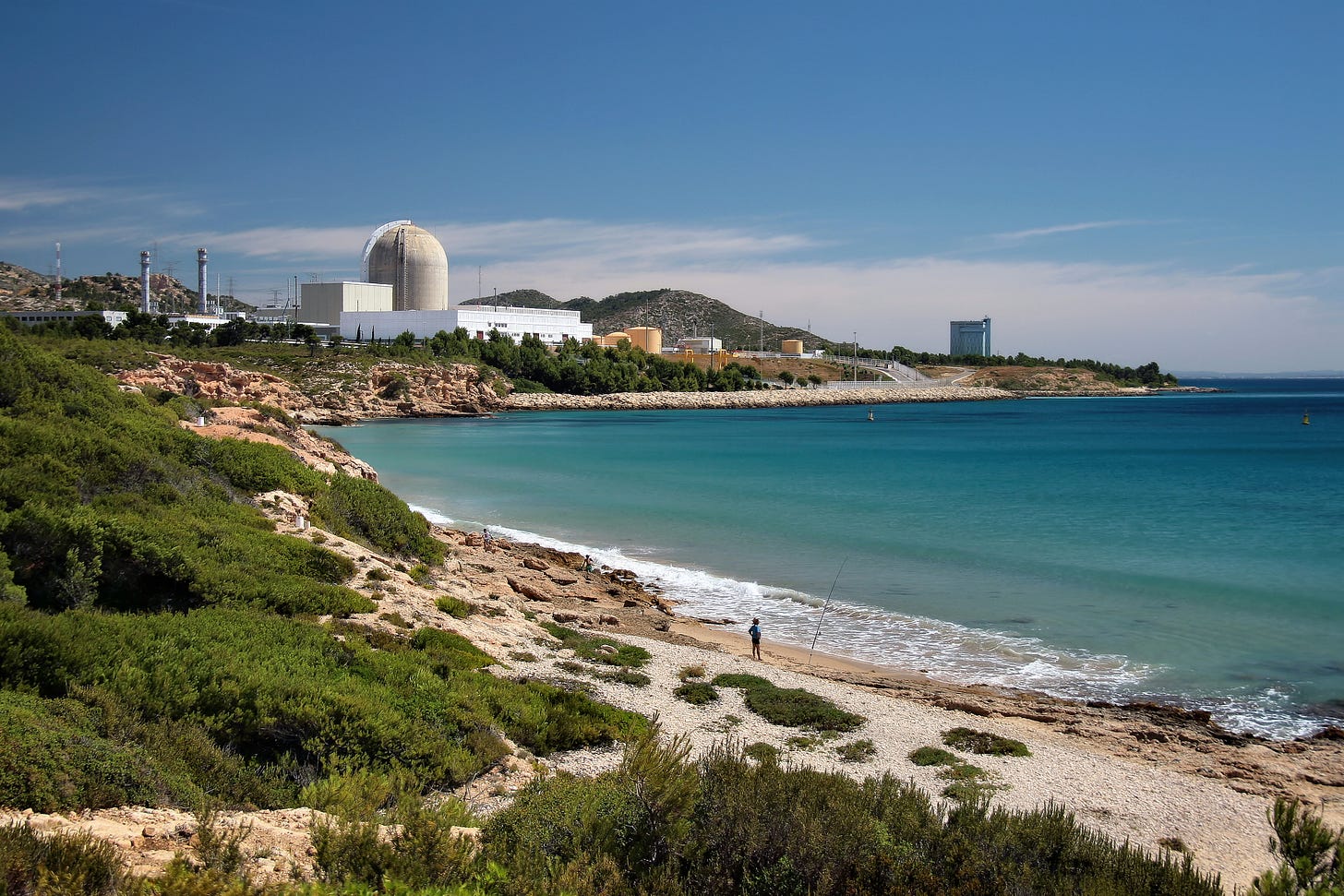Europe’s last nuclear phaseout shows signs of wavering
Spain’s plan to start shutting down reactors in 2027 is splitting its ruling coalition.

Nuclear phaseouts are fading out of fashion.
Switzerland voted to keep its four reactors going last August. Belgium’s new ruling coalition announced last month it would reverse the decision to shutter its plants. Germany’s conservatives, who are on track to win this month’s election, put out a policy paper in November calling the completion of the country’s nuclear exit two years ago “an ideologically motivated and wrong decision.” Even Taiwan – with its semiconductor factories facing outages and record-high electricity prices – is growing squeamish about ending the atomic era that helped form the self-governing island’s “silicon shield” against China.
Yet Spain remains stubbornly committed to start shutting down its nuclear reactors starting in 2027.
The tides may be turning against the phaseout.
On Wednesday, the Congress of Deputies – the lower house of Spain’s legislature – voted narrowly to approve a resolution condemning Socialist Prime Minister Pedro Sánchez’s phaseout plans.
“For the first time in history, the Spanish Congress is supporting nuclear power,” Manuel Fernandez Ordoñez, a nuclear physicist in Madrid, told me via WhatsApp Thursday morning. “The Spanish government is alone in the world, being the only government in favor of shutting down the nuclear plants already in operation.”
Two conservative opposition parties joined the far-right Vox to approve the non-binding legislation in a 171-to-164 vote, with 14 abstentions. The votes against the resolution came from Sánchez’s Socialists, the Basque Nationalists, and the left-wing Sumar. Two Catalan parties abstained.
After a no-confidence vote against Sánchez threw Spain into a political crisis in 2023, his center-left Socialists came back to power in an alliance with the left and nationalist parties who want to secede to form independent Basque and Catalan homelands. Outrage over the prime minister’s concessions to parties that want to break Spain apart fueled the rise of a movement that openly waxes nostalgic for the dictatorship of Francisco Franco in a country whose recent memories of fascist rule were supposed to have inoculated its voters against the far-right fever gripping other parts of Western Europe. Corruption charges against members of the ruling party, including Sánchez’s wife, further eroded the government’s support.
But the anti-nuclear position in particular appears to have alienated the parties from Catalonia, where three nuclear reactors produce 60% of the province’s electricity.
“In yesterday's vote, these groups did not support the government's position and abstained, which allowed the [resolution] to be approved by majority,” Fernandez Ordoñez said. “Undoubtedly, it is a position that further weakens the government, splashed by countless cases of corruption.”
Polling data from December shows 57% of Spaniards want the country to keep using nuclear energy.
The online survey of 1,025 adults, part of a multi-country opinion study commissioned by the nuclear consultancy Radiant Energy, asked respondents whether – assuming all options were equally viable – they preferred their government ban nuclear power, keep plants open without building more, construct new reactors with subsidies or expand atomic energy without subsidies. While 30% backed the phaseout, 24% supported keeping plants open without building new ones. Another 34% favored adding more atomic energy, with slightly more opposed to government subsidies to make it happen than in support.
“It is a fast and effective source of energy generation, which would provide energy and economic stability,” an anonymous male respondent, 41, said, according to results Radiant shared exclusively with me for this newsletter.
A woman, 66, said: "If used wisely, it is the cheapest and most environmentally friendly energy."
Last March, the Stand Up for Nuclear campaign held Spain’s first pro-nuclear demonstration in the Gothic quarter of Barcelona. Then, last month, as many as 10,000 marched in west of Madrid in support of keeping the Almaraz Nuclear Power Plant – the first set to start shutting down its reactors in 2027 – in open.


Programming note: Starting at 5 p.m. EST today, I’ll be giving a virtual seminar at the East-West Center on my recent reports on nuclear power in China and the Philippines. Sign up here to join.
Mother Jones republished Tuesday’s edition on the Duke data center study.
I had two short pieces up on GZERO this week. One is about China’s move to assemble a planetary defense team in the face of a large asteroid heading toward Earth in seven years. (Any other Three Body Problem fans feeling a little uneasy?) The second story is about the Australian mining company that holds the license for Greenland’s big prospective rare earths deposit hoping that the autonomous Danish island’s election next month sees the ruling left-wing environmentalist party ousted in favor of the populist social democrats who might lift a mining ban. Melbourne-based Energy Transition Minerals’ stock price dripped after the news came out, but rose slightly today to, well, a little over a nickel.
I gave an interview to the excellent Substack newsletter Laid Off, where I talked about my buyout. You can read it here:
The soundtrack to today’s edition is a jazzy lounge house track called “Sueños Soleados,” by the Ann Arbor electronic artist John Beltran and remixed by the Zurich-based producer Melodiesinfonie.
Signing off from an overcast Bay Ridge, Brooklyn, where we’re not only getting a “long overdue” new crosswalk and stop sign along Shore Road – we’re also getting an $8 million upgrade to the Shore Parkway Promenade, the jewel of what I like to call the Brooklyn Riviera.





